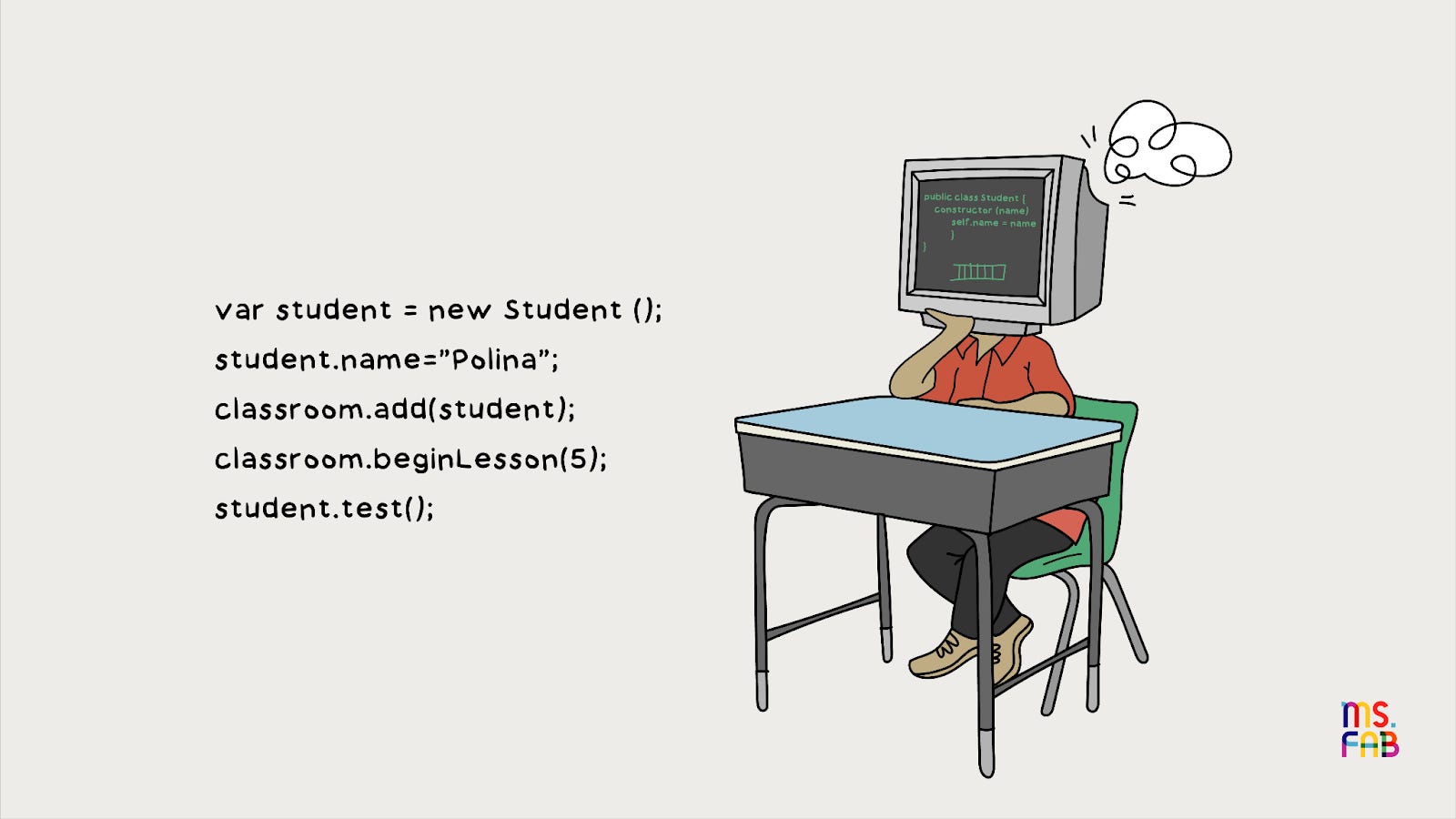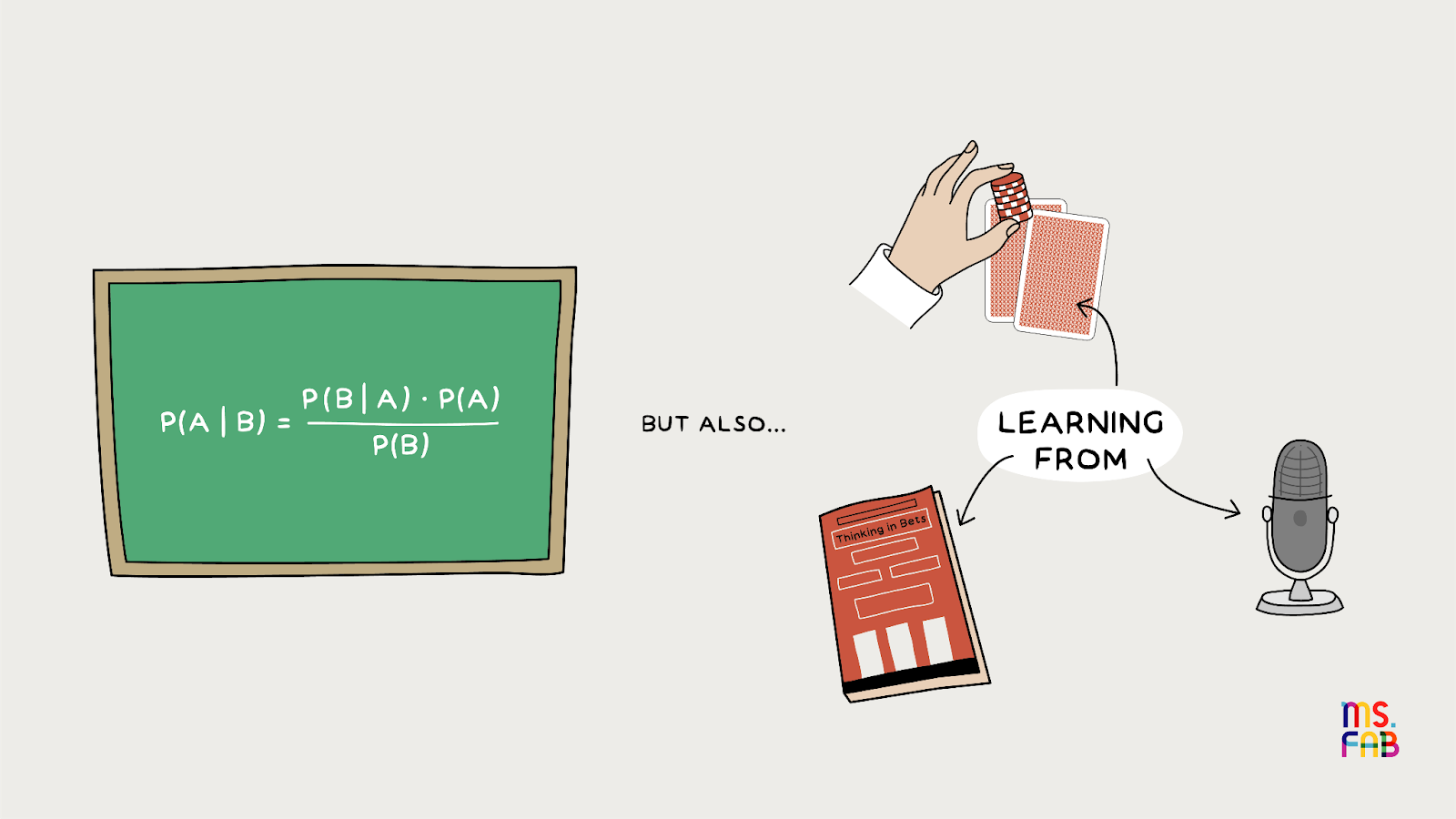The Profile: The billion-dollar horse gambler & the rock climber who can’t feel fear
The Profile: The billion-dollar horse gambler & the rock climber who can’t feel fearStories make knowledge memorable and practical. They give us heroes we want to emulate.Good morning, friends! Ana Lorena Fabrega is the Chief Evangelist at Synthesis, an online enrichment club where kids learn mental models, decision-making, and game theory by playing complex and collaborative games. In this guest column, Ana explains why story-driven learning is instrumental during the learning process. Why Story-Driven Learning Can Help You Master Any SubjectI’m a huge fan of The Profile—and not just because Polina is a dear friend and someone I really admire. I love it for a much deeper reason. Two years ago, I quit my job as a teacher. I was fed up with how wrong schools get kids. Schools don’t teach the way humans are designed to learn. Walk into a typical classroom today. You’ll probably find a teacher lecturing about facts, figures, and formulas. We treat kids like computers. Give them rules and information, and if they’re functioning properly, they’ll process the data and spit out the right answer. Kids who struggle must have bugs in their system. Of course, humans are great at logic and math. But it’s not the natural way we learn. We weren’t designed in a laboratory to follow code. We evolved to learn by mimicking. Just look at the cave drawings of our ancestors. Every once in a while, you’ll find numbers, like etched tally marks on walls, but on the whole, you’ll mostly find paintings of hunting trips. When ancient humans wanted to pass on knowledge, they shared stories of heroes for their kids to copy. Stories are fun, engaging, exciting, and captivating. We love to hear tales of ordinary people who faced conflict, failed, picked themselves up, and found new strategies to overcome adversity. Stories make knowledge memorable and practical. They give us heroes we want to emulate. The best educators today leverage these aspects of human nature. Think back to your favorite teacher as a child. I’m willing to bet two things. First, they made the subject come alive with captivating illustrations. Maybe they shared from their own experience, talked about history or the news, or showed examples in class. Second, they gave you the freedom to practice what you were learning. You could take what they showed you and apply it yourself. These teachers know how to create an environment where kids can do what they do naturally. Next time you have the chance, go watch kids play. They’re almost always pretending to live out stories they’ve heard. They copy characters from their favorite shows, games, and books. Much of the time, they’ll extend the story to include their friends, family members, and events from their own lives. In other words, they’re applying what they learn from stories to the real world. We’d all learn much better if we copied kids. Find stories of successful people, like those from The Profile, and then practice using their tactics. This turns study from a chore to a joy. It’s the natural way we’re meant to learn. In essence, this is what Polina does with The Profile. As she told me once:
I think that what’s true of Polina is true of all of us. We learn best when we can connect an idea with a person and their story. Consider an example. Let’s say you want to learn about decision-making. You might think the best step is to go to school and study statistics. One of your first classes would introduce you to Bayes' Theorem, a famous formula for calculating probabilities. It goes like this: Let’s be honest. Your eyes probably glazed over. Good luck remembering all those variables! Formula-first learning is difficult because formulas are boring. We don’t naturally find them engaging. On the other hand, we’re naturally drawn to interesting people. So, what’s a better way to learn? Instead of beginning with Bayes' Theorem, you might start with the story of Annie Duke. She’s one of the best female poker players in the history of the game. How did she become so successful? She used probability theories, like Bayes' Theorem, to make good decisions about how to make good bets. This strategy rocketed her to the top of the poker world. In 2010, she won the NBC National Heads-Up Poker Championship. Her lifetime earnings amount to over four million dollars. Now, all of the sudden, I bet you’re much more interested in learning how to make decisions using statistics. You’ve wrapped all the numbers and theories around a person with a good story. You have someone worth mimicking. Related: Meet Ana Lorena Fabrega, the Educator Focused on Independent Thinking and Mental Models I’m not saying mathematical formulas don’t matter. Of course they do! If we want to master something, we need to know the technical details like the backs of our hands. However, to arrive at that ultimate goal, we need to begin in the right spot. Start with stories and the rest will fall into place. You can use this same strategy for anything. If you want to learn about engineering, you could read about the Wright brothers and then build a model plane. If you want to learn about fashion, you could start by reading about Coco Chanel and then design an outfit. If you want to learn about computers, read about Alan Kay and program an app. If you want to learn about literature, read about Mary Shelley and write a horror story. The examples are endless. With stories, you learn how successful people achieved their greatest accomplishments—and what caused their greatest failures. Think about Steve Jobs. He was one of the greatest business leaders in history. Everyone has something to learn from him. But for years, he denied being the father of his daughter, Lisa, leaving her and her mother on welfare. The stories of real-life people teach us many things. We learn what to copy and what to avoid. In the past, it was hard to learn from the stories of others. You’d have to read biographies of people from long ago or find a mentor in your local town. Now, that’s all changed. The internet is overflowing with stories of amazing people from every area of life. Twitter, YouTube, Wikipedia, The Profile—everywhere you look, you can find someone to learn from. No matter the topic, there’s an incredible story waiting to inspire you. — THE PROFILE DOSSIER: On Wednesday, premium members received The Profile Dossier, a comprehensive deep-dive on a prominent individual. It featured Tope Awotona, the immigrant founder who built a $3 billion software behemoth. Become a premium member & read it below. — The following is the second edition of "The Best of The Profile” series, including some of my all-time favorite profiles, podcasts, documentaries, interviews, and podcasts. PROFILES.— The billion-dollar horse gambler [**HIGHLY RECOMMEND**] PEOPLE TO KNOW.The billion-dollar horse gambler: Veteran gamblers know you can’t beat the horses. Play for long enough, and failure is inevitable. Bill Benter took that challenge — and won. He wrote an algorithm that couldn’t lose at the horse track. A billion dollars later, Benter tells his story for the first time. “Gambling has always been the domain of wise guys from the wrong side of the track.” The rock climber who can’t feel fear: Alex Honnold has become a paramount symbol of fearlessness. He is history’s greatest rock climber in the free solo style, meaning he ascends without a rope or protective equipment of any kind. In this profile, scientists take a close look at Honnold’s brain to determine what occurs in his amygdala, the “fear center” of the brain. If you find yourself experiencing pangs of anxiety in everyday life, this one will blow your mind. (Nautilus) “It’s better over time if you can put yourself in a situation where you experience some fear, but you overcome it, and you do it again and again and again.” YouTube’s first responders: YouTube’s content moderators are responsible for scrubbing the internet of violent and disturbing content, but in order to do that, they have to first watch it all. There’s a copyright queue, a hate and harassment queue, and an “adult” queue for porn. But the most disturbing one of all is the “VE queue,” which stands for violent extremism. It has had serious and long-lasting consequences for the people doing the work. Why? Because you never know when you’re going to see the thing you can’t unsee until you see it. (The Verge) “Every day you watch someone beheading someone, or someone shooting his girlfriend. After that, you feel like wow, this world is really crazy. This makes you feel ill.” The mysterious $60-billion woman: Following her divorce from Amazon founder Jeff Bezos, MacKenzie Scott became one of the richest women in the world overnight. And almost immediately she started working to give the money away, and in a way that could change philanthropy. This is a fascinating profile on Scott, who has quietly given away $1.7 billion to a wide swath of nonprofits, from historically Black colleges to a crisis text line. This is a must-read. (Marker) “To put it really crudely, technocratic philanthropy is philanthropy that is done to people rather than with people.” The hacker who took down a country: Daniel Kaye, a hacker known as Spdrman, found regular jobs tough but corporate espionage easy. Then he unleashed a DDoS attack that paralyzed Liberia for days. Half the country was cut off from bank transactions, farmers couldn’t check crop prices, students couldn’t Google anything, and the largest hospital went offline for about a week. This one reads like a cybersecurity thriller. (Bloomberg) “I have broken the Internet and am dead afraid but otherwise everything’s hunky dory.” COMPANIES TO WATCH.The company making robo-pets: You know Boston Dynamics as the company that keeps releasing videos of robots doing things that robots aren't supposed to be able to do. It has previously featured a robo-dog opening a door for its robo-dog friend, a humanoid robot going for a stroll, and a robot doing backflips. But now it has to answer the question on everyone’s mind — can it turn its inventions into a real business or will it simply remain a research project? (The New York Times) “We subconsciously treat robots like living things — and I don’t think that effect will go away as we get used to the technology.” The escort service targeting student debt: SeekingArrangement is a web service that connects a “sugar baby” (typically a woman) to a “sugar daddy” (a man) for a relationship that offers financial support in exchange for companionship and/or more. Now, the site is marketing itself as an antidote to student debt & entices college students with a “free upgrade.” Other than the fact that student loans are obviously a huge problem in this country, there’s a lot to unpack in this story. (The New York Times) "Women have sex with vile men all the time so why shouldn’t we be paid for it if we choose? I don’t deserve to be shamed for it, or scammed because of it.” ✨ This installment of The Profile is free for everyone. If you would like to get full access to all of the recommendations, including today’s audio and video sections, sign up below. AUDIO TO HEAR.Maria Konnikova on sharpening your decision-making: In a very short time span, writer-turned-professional poker player Maria Konnikova faced a sudden health issue, her grandmother unexpectedly passed away, and both her mom and husband lost their jobs. She began thinking about the role that chance plays in all of our lives. In this fascinating conversation, Konnikova discusses why she turned to poker to better understand decision-making in uncertain situations and how we can all get better at sharpening our thought process. (Link available to premium members.) Hannah Fry on using math to find love: Algorithms dominate our lives. Hannah Fry, the author of Mathematics of Love, says math can help you determine the ideal age to settle down. To have the highest chance of picking the best partner, you should spend the first 37% of your dating life having fun and dating different people. After that period is over, you should settle down with the next person that you find who is better than everyone else you’ve ever dated. (Link available to premium members.) Kat Cole & Daley Ervin’s secrets to marriage bliss: Focus Brands president Kat Cole was at an event in Baltimore when she first laid eyes on her now-husband Daley Ervin. What she thought would be a one-night stand turned into a whirlwind romance and led to a blissful marriage. This episode contains lots of practical insights about how to nurture a relationship as a couple while having varying interests as individuals. It’s a must-listen. (Link available to premium members.) VIDEOS TO SEE.Bryan Stevenson the bias of the modern death penalty: Told primarily in his own words, this documentary shares 'death row lawyer' Bryan Stevenson’s experience with a criminal justice system that “treats you better if you’re rich and guilty than if you’re poor and innocent.” Stevenson believes that justice lies in the ugly details because they are “what might allow us to one day claim something really beautiful.” (Link available to premium members.) Loy Machedo on snap judgments: Loy Machedo has tattoos all over his face, arms, and body. At first sight, complete strangers have labeled him a smoker, a drug addict, and a gangster. He is none of those things. “I’m a speaker, a writer, and I’m a person who loves to read books. I’m just like you,” he says. “How many people do we judge before we even know them? Have you thought about that?” (Link available to premium members.) |
Older messages
The Profile: The world’s most feared investor & the godfather of modern surveillance
Sunday, November 28, 2021
“Letters are among the most significant memorial a person can leave behind them.”
Introducing the Youngest Member of The Profile!
Sunday, November 21, 2021
Big news about a tiny person!
The Profile: The men who carry out executions for the state & the NBA's infamous trash-talker
Sunday, November 14, 2021
What happens when betting on yourself ... pays off
The Profile: The king of sports merchandise & the influencers getting paid for digital intimacy
Sunday, November 7, 2021
This week, I interviewed legendary restaurateur Danny Meyer for The Profile.
The Profile: The driver revolutionizing F1 & the internet's most popular sperm donor
Sunday, October 31, 2021
I spent my Saturday night trying to wrap my head around the future of our digital lives.
You Might Also Like
The Keywords No One’s Using—Yet
Monday, March 10, 2025
Most SEOs chase the same keywords. You won't. Get ahead by targeting search terms no one else knows about—yet. ͏ ͏ ͏ ͏ ͏ ͏ ͏ ͏ ͏ ͏ ͏ ͏ ͏ ͏ ͏ ͏ ͏ ͏ ͏ ͏ ͏ ͏ ͏ ͏ ͏ ͏ ͏ ͏ ͏ ͏ ͏ ͏ ͏ ͏ ͏ ͏ ͏ ͏ ͏ ͏ ͏ ͏ ͏
The Silver Influencer 🩶
Monday, March 10, 2025
Work with Gen X and Boomer influencers.
Elon lost the fight to Open AI
Monday, March 10, 2025
but did he really lose?..... PLUS: Authors sued Meta!
TikTok updates, video editing hacks, avoiding AI hallucinations, and more
Monday, March 10, 2025
Today's Guide to the Marketing Jungle from Social Media Examiner... presented by social-media-marketing-world-logo Mondays can feel overwhelming, Reader, but don't worry... we've got your
How Amazon Lures Chinese Factories Away From Temu [Roundup]
Monday, March 10, 2025
Need funding for your Canadian Amazon business? Not sure if you should use a Canadian corporation or US LLC to form your company? We'll cover these questions and more in our Start and Grow Your FBA
Is The Trump Administration Crashing The Market On Purpose?
Monday, March 10, 2025
Listen now (4 mins) | To investors, ͏ ͏ ͏ ͏ ͏ ͏ ͏ ͏ ͏ ͏ ͏ ͏ ͏ ͏ ͏ ͏ ͏ ͏ ͏ ͏ ͏ ͏ ͏ ͏ ͏ ͏ ͏ ͏ ͏ ͏ ͏ ͏ ͏ ͏ ͏ ͏ ͏ ͏ ͏ ͏ ͏ ͏ ͏ ͏ ͏ ͏ ͏ ͏ ͏ ͏ ͏ ͏ ͏ ͏ ͏ ͏ ͏ ͏ ͏ ͏ ͏ ͏ ͏ ͏ ͏ ͏ ͏ ͏ ͏ ͏ ͏ ͏ ͏ ͏ ͏ ͏ ͏ ͏ ͏ ͏ ͏ ͏ ͏
Dry powder piles up for mature funds
Monday, March 10, 2025
Defense tech VC deals balloon; data dive on VC's emerging opportunities; France's positive quarter, but sluggish year Read online | Don't want to receive these emails? Manage your
Digiday wants to hear from you
Monday, March 10, 2025
As a loyal reader, your feedback is vital as we continue to evolve our products and coverage. We're reaching out to see if you'd answer a few questions to help make your experience with Digiday
Advertisers are calling for full URL-level campaign reporting, and DSPs are responding in different ways
Monday, March 10, 2025
The Trade Desk quells talk of full URL-level campaign reporting (similar to Amazon), but there are nuances. March 10, 2025 PRESENTED BY Advertisers are calling for full URL-level campaign reporting,
The 90-10 Rule: Why Great Leaders Don’t Need Universal Approval
Monday, March 10, 2025
Leaders who focus too much on making everyone happy may inadvertently stifle the very innovation and progress that constructive dissatisfaction can inspire.




